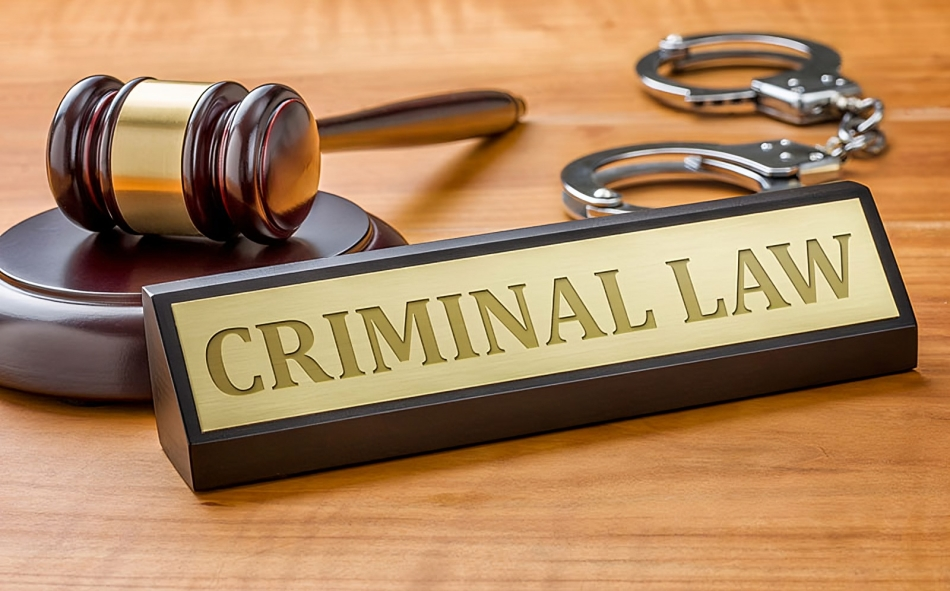Law
University of Metaphysical Sciences Lawsuit Update & Impact

The Background of the University of Metaphysical Sciences Lawsuit
The University of Metaphysical Sciences (UMS) has been involved in legal disputes that have attracted significant attention. These lawsuits have raised concerns within the metaphysical education community. Various allegations, including academic accreditation issues, business practices, and intellectual property rights, have been at the center of the conflict. The ongoing legal proceedings have brought different perspectives, with some defending UMS and others questioning its legitimacy.
Key Legal Allegations Against the Institution
Several allegations have been brought against the University of Metaphysical Sciences. Accreditation concerns have been among the primary issues. The institution has faced criticism for its academic credibility, with some questioning whether its degrees hold valid recognition. Furthermore, intellectual property disputes have emerged, involving the use of specific course materials and metaphysical concepts. These claims have fueled debates over the rights and ownership of educational content in this unique field.
The Response from University of Metaphysical Sciences
The University of Metaphysical Sciences has consistently defended its position against legal accusations. Official statements have emphasized that UMS operates with transparency and integrity. The institution has argued that its academic programs serve a specific niche that traditional accrediting bodies do not fully recognize. Additionally, UMS has maintained that its teachings and materials fall within the broader scope of metaphysical education, which is not easily defined by conventional academic standards.
Recent Legal Proceedings and Court Decisions
The lawsuit has seen multiple developments in recent months. Court hearings have addressed critical issues, including the legitimacy of claims against UMS and the potential impact on its students. While some rulings have been in favor of the institution, others have highlighted areas requiring further investigation. Legal experts have noted that the complexity of metaphysical education laws makes the case particularly challenging to resolve. As the proceedings continue, stakeholders eagerly await final decisions that may set precedents for similar institutions.
The Impact on Students and Faculty Members
Students and faculty members at UMS have expressed concerns about the potential consequences of the lawsuit. Some worry that the legal disputes may affect their degrees’ credibility. Additionally, faculty members face uncertainties regarding the future of their teaching positions. Despite these challenges, the institution has reassured its community that it remains committed to providing education while navigating the legal complexities.
The Future of the University of Metaphysical Sciences
As the legal battles continue, the future of UMS remains uncertain. The outcome of the lawsuit may influence the regulatory landscape for metaphysical education. Potential settlements or court rulings could lead to changes in how similar institutions operate. However, UMS has indicated its determination to continue offering its programs, regardless of legal challenges. Supporters believe that the institution will adapt and evolve to meet new legal standards.
Broader Implications for Metaphysical Education
The lawsuit against UMS has sparked discussions about the broader field of metaphysical education. Regulatory authorities may reassess their approach to accreditation and legitimacy. If UMS prevails, it may set a precedent for other institutions facing similar scrutiny. Conversely, an unfavorable ruling could lead to stricter oversight, affecting how metaphysical studies are recognized in academic and professional circles.
Conclusion:
Ongoing Developments and Final Thoughts
The University of Metaphysical Sciences lawsuit update remains a subject of interest for students, educators, and legal experts. As the case progresses, new developments may shape the future of metaphysical education. Observers continue to follow the legal proceedings closely, recognizing the potential long-term impact on academic institutions in this field. Regardless of the outcome, the lawsuit underscores the complexities of alternative education systems and their place in the broader academic framework.
Law
How to Transition Your Essex Business to a Limited Company Structure

Transitioning your Essex business to a limited company structure is a significant step that can provide numerous benefits, including increased credibility, tax efficiencies, and limited liability. However, the process can seem daunting if you’re unfamiliar with the legal and financial requirements. In this guide, Chelmsford Accountants, LCA, break down everything you need to know to make the switch smoothly and successfully.
1. Why Consider Becoming a Limited Company?
Before making the transition, it’s important to understand why incorporating your business as a limited company might be beneficial:
- Limited Liability: As a sole trader, you are personally responsible for any business debts. With a limited company, your personal assets are protected.
- Tax Efficiency: Limited companies often have lower tax liabilities compared to sole traders, allowing you to retain more profits.
- Enhanced Business Credibility: Many clients and suppliers prefer to work with a registered limited company as it gives a more professional and established image.
- Greater Investment Opportunities: Banks and investors are often more inclined to provide funding to limited companies over sole traders or partnerships.
2. Choosing a Name and Registering with Companies House
Your limited company needs a unique name that hasn’t already been taken by another business. Use a Company name checker to verify availability. Once you have a name, you can officially register your business with Companies House. During this process, you’ll need to provide:
- A registered office address (this must be a physical UK address).
- Details of company directors and shareholders.
- A Memorandum and Articles of Association (outlining how the company will be run).
3. Registering for Corporation Tax and VAT
Once incorporated, your business must register for Corporation Tax with HMRC. Depending on your turnover, you may also need to register for VAT. It’s crucial to stay compliant with tax regulations and submit accurate financial statements annually.
4. Opening a Business Bank Account
As a limited company, you must keep your personal and business finances separate. Opening a business bank account will help with this, ensuring smoother financial management and clearer tax reporting.
5. Transferring Business Assets and Contracts
If you were previously a sole trader, you’ll need to transfer any assets (such as equipment, property, and intellectual property) to the new limited company. Additionally, you should review any existing contracts with clients and suppliers to update them with your new business details.
6. Updating Your Accounting and Payroll
As a limited company, your financial responsibilities will change. You may need to:
- Set up a payroll system if you plan to pay yourself or employees a salary.
- Work with an accountant to ensure your bookkeeping and financial records comply with company laws.
- Submit annual accounts and a confirmation statement to Companies House.
7. Notifying Clients and Suppliers
Once your business transitions to a limited company, inform your clients, suppliers, and stakeholders about the change. Update your invoices, contracts and marketing materials with your new business structure and registration number.
8. Understanding Ongoing Responsibilities
Operating a limited company comes with additional legal and financial responsibilities, including:
- Filing annual accounts and Corporation Tax returns.
- Keeping accurate financial records.
- Complying with employment and workplace regulations if you have staff.
Final Thoughts
Transitioning your business to a limited company structure is a strategic move that can unlock numerous advantages. While the process involves several steps, with careful planning and the right professional advice, it can be a smooth and rewarding transition.
If you’re unsure about the legal and financial aspects, working with a company formation agent or an accountant can make the process much easier. With expert guidance, you can set up your limited company efficiently and focus on growing your business with confidence.
Making the switch? Let’s get started today and take your Essex business to the next level!
Law
Wyoming Mesothelioma Lawyer Vimeo: Your Guide to Legal Help

Wyoming mesothelioma lawyer Vimeo provides essential insights into navigating legal claims related to mesothelioma cases. This resource ensures individuals affected by asbestos exposure in Wyoming are equipped with the knowledge needed to secure compensation and justice. By utilizing the expertise of experienced mesothelioma lawyers, victims and their families can confidently pursue their cases with minimal stress.
What Is Mesothelioma and How Is It Caused?
Mesothelioma is a rare but aggressive cancer primarily caused by prolonged exposure to asbestos. This mineral, once widely used in construction and manufacturing, releases harmful fibers when disturbed. These fibers, when inhaled or ingested, can embed themselves in the lining of the lungs, abdomen, or heart, eventually leading to mesothelioma. Unfortunately, the disease often manifests decades after the initial exposure, complicating early detection.
Why Legal Representation Is Crucial for Mesothelioma Cases
Mesothelioma cases are complex, involving detailed medical and occupational histories. Wyoming mesothelioma lawyer Vimeo simplifies the process by connecting victims with qualified attorneys who specialize in asbestos-related claims. Professional legal representation ensures that:
- Evidence Is Compiled Thoroughly: Lawyers gather medical records, employment details, and other essential documentation.
- Deadlines Are Met: Filing deadlines for claims, known as statutes of limitations, are strictly adhered to.
- Compensation Is Maximized: Legal experts work to negotiate settlements that cover medical expenses, lost wages, and emotional distress.
Common Sources of Asbestos Exposure in Wyoming
Although Wyoming is not heavily industrialized, asbestos exposure risks persist. The most common sources include:
- Oil Refineries: Older facilities may contain asbestos in insulation or machinery.
- Mining Operations: Some sites, particularly talc and vermiculite mines, have historically contained asbestos deposits.
- Construction Materials: Homes and buildings built before the 1980s often contain asbestos in roofing, flooring, and insulation.
How Wyoming Mesothelioma Lawyer Vimeo Assists Victims
Victims often face significant challenges when filing claims, such as identifying exposure sources and proving liability. Wyoming mesothelioma lawyer Vimeo addresses these issues by offering:
- Access to Experts: Experienced attorneys collaborate with medical and occupational experts.
- Tailored Guidance: Each case receives personalized attention to address specific circumstances.
- Supportive Resources: Vimeo provides educational materials to empower victims and their families.
Steps to File a Mesothelioma Claim in Wyoming
Filing a claim may seem overwhelming, but following these steps can simplify the process:
- Consult an Attorney: Reach out to a Wyoming mesothelioma lawyer through Vimeo for initial guidance.
- Gather Documentation: Compile medical records, employment history, and evidence of asbestos exposure.
- Identify Responsible Parties: Determine which companies or entities may be liable for the exposure.
- File the Claim: Submit the case to court or seek an out-of-court settlement.
Why Vimeo Is an Effective Platform for Legal Advocacy
Vimeo’s platform offers a user-friendly way to access resources about mesothelioma legal services. Through informative videos and attorney profiles, victims can:
- Learn About the Legal Process: Educational content simplifies complex legal jargon.
- Connect with Attorneys: Contact details and case examples help in selecting the right representation.
- Stay Updated: Regular updates ensure victims remain informed about changes in asbestos litigation.
Financial Assistance Through Mesothelioma Claims
One of the main goals of mesothelioma claims is to alleviate financial burdens. Compensation typically covers:
- Medical Expenses: Costs for treatments such as surgery, chemotherapy, or radiation.
- Lost Wages: Reimbursement for income lost due to illness.
- Pain and Suffering: Monetary acknowledgment of emotional and physical distress.
Transitioning from Awareness to Action
Awareness of mesothelioma risks and legal rights is only the first step. Wyoming mesothelioma lawyer Vimeo emphasizes the importance of taking actionable steps, such as reaching out to legal experts and exploring available resources. This ensures that victims have their voices heard and their rights upheld.
The Importance of Timely Action in Mesothelioma Cases
Taking timely action is absolutely critical in mesothelioma claims, especially since statutes of limitations can vary significantly. In Wyoming, victims often face a limited timeframe to file their cases, making early consultation with a lawyer essential. Act promptly to ensure you meet all deadlines and increase the likelihood of achieving a successful outcome.
Preventative Measures to Reduce Asbestos Exposure Risks
Although asbestos use has declined, its presence in older buildings and materials remains a concern. Preventative steps include:
- Professional Inspections: Hire experts to assess potential asbestos in homes or workplaces.
- Avoid Disturbing Materials: Refrain from drilling or cutting asbestos-containing materials.
- Use Protective Gear: Workers in high-risk industries should wear appropriate safety equipment.
Leveraging Wyoming Mesothelioma Lawyer Vimeo for Justice
For individuals affected by mesothelioma, the combination of expert legal support and accessible resources proves to be not only invaluable but also highly impactful in navigating their legal journey. Moreover, Wyoming mesothelioma lawyer Vimeo effectively bridges the gap between victims and legal advocacy, thereby ensuring that every case receives the dedicated attention and thorough representation it truly deserves.
Law
Criminal Lawyers: Champions of Justice in a Complex Legal System

Criminal lawyers serve as essential pillars in the justice system, defending individuals accused of criminal activities. Their expertise ensures the accused receive fair representation, safeguarding constitutional rights and advocating for justice. Moreover, they play a critical role in upholding the principle of “innocent until proven guilty.” This article delves into the responsibilities, skills, challenges, and importance of criminal lawyers in modern society.
1. The Role of Criminal Lawyers in the Legal System
Criminal lawyers are legal professionals specializing in defending individuals or entities charged with criminal offenses. They handle cases ranging from minor infractions to major felonies, ensuring their clients receive fair trials. These lawyers perform various tasks, including gathering evidence, interviewing witnesses, and formulating robust defense strategies.
Furthermore, they navigate complex legal frameworks, interpret statutes, and analyze precedents to protect clients’ rights effectively. Their role extends beyond courtrooms as they also engage in plea bargaining, aiming for reduced penalties or alternative resolutions. By providing informed guidance, criminal lawyers help clients understand legal proceedings and potential outcomes.
Transitioning to courtroom proceedings, criminal lawyers present arguments, cross-examine witnesses, and challenge evidence presented by prosecutors. This meticulous process requires critical thinking, confidence, and an in-depth understanding of legal principles. Additionally, they collaborate with paralegals, investigators, and other professionals to strengthen their cases.
Their dedication ensures the justice system remains fair, impartial, and accessible to everyone. Without their efforts, many individuals could face unjust convictions or excessive punishments.
2. Skills Essential for a Successful Criminal Lawyer
Becoming a successful criminal lawyer requires a unique combination of legal expertise, interpersonal skills, and emotional resilience. Among these, analytical thinking is crucial for evaluating evidence, identifying loopholes, and constructing compelling arguments.
Equally important, excellent communication skills enable lawyers to articulate complex legal concepts clearly, whether addressing judges, juries, or clients. Moreover, strong negotiation abilities are indispensable when seeking favorable plea deals or settlements. Criminal lawyers must also possess unwavering confidence and the ability to remain composed under pressure.
Empathy and emotional intelligence further enhance their ability to connect with clients, understanding their fears and concerns. Balancing compassion with professionalism ensures clients feel supported while navigating difficult legal situations. Time management skills are equally vital, given the high-pressure environment of legal practice.
Continuously adapting to legal developments, criminal lawyers also require a commitment to lifelong learning. Staying updated on legal reforms, landmark judgments, and emerging trends is essential for maintaining a competitive edge.
Ultimately, the combination of these skills allows criminal lawyers to excel in their roles and deliver exceptional representation to their clients.
3. Challenges Faced by Criminal Lawyers
The career of a criminal lawyer is demanding, presenting unique challenges that require resilience and determination. Firstly, the emotional toll of handling sensitive cases can lead to stress and burnout. Lawyers often face intense scrutiny, particularly in high-profile cases with public or media attention.
Time constraints and heavy workloads also contribute to the challenging nature of the profession. Preparing for trials involves reviewing extensive documentation, conducting research, and coordinating with multiple parties. Moreover, navigating ethical dilemmas, such as defending morally questionable clients, requires adherence to strict professional standards.
Additionally, criminal lawyers may encounter hostile environments in courtrooms, including aggressive cross-examinations and confrontations with opposing counsel. Building credibility and maintaining integrity in such situations is crucial for success. Financial pressures can also arise, particularly for lawyers working in private practice or starting their firms.
Despite these challenges, the fulfillment of helping individuals and championing justice motivates many to persevere. Criminal lawyers often describe their work as rewarding, given its significant societal impact.
4. Importance of Criminal Lawyers in Safeguarding Justice
Criminal lawyers play an indispensable role in safeguarding justice, ensuring that legal processes remain fair and unbiased. By advocating for their clients, they uphold the constitutional rights guaranteed to every individual, regardless of their charges.
Furthermore, they provide a crucial check against potential abuses of power by law enforcement or prosecuting authorities. This oversight helps prevent wrongful convictions and ensures accountability within the criminal justice system. Their work also promotes societal trust in the legal process by demonstrating that everyone deserves competent representation.
Criminal lawyers contribute to legal education by raising awareness about individual rights and the consequences of legal actions. They often participate in community outreach programs, educating citizens about their responsibilities under the law. Their dedication strengthens the rule of law, fostering stability and harmony in society.
Without their expertise, many individuals would struggle to navigate the complexities of legal proceedings, leading to significant injustices. Criminal lawyers’ commitment to fairness and equality ensures the legal system functions effectively for all members of society.
5. The Future of Criminal Law Practice
The practice of criminal law is evolving, shaped by advancements in technology, changing societal norms, and emerging legal challenges. Technology has revolutionized case management, evidence analysis, and trial presentations, enhancing the efficiency of legal proceedings.
Additionally, the rise of cybercrimes has expanded the scope of criminal law, requiring lawyers to develop expertise in digital forensics and cybersecurity. Globalization has also introduced complex cross-border legal issues, such as extradition and international criminal law.
As societies continue to grapple with issues like social justice, prison reform, and restorative justice, criminal lawyers must adapt to these shifting priorities. They are increasingly advocating for alternative sentencing options, emphasizing rehabilitation over punishment for certain offenses.
Legal education is also evolving, with institutions incorporating practical training and interdisciplinary approaches to prepare future lawyers. This holistic approach ensures they are well-equipped to address modern challenges.
Ultimately, the future of criminal law practice will depend on lawyers’ ability to innovate, collaborate, and advocate effectively within a dynamic legal landscape.
Conclusion
Criminal lawyers serve as champions of justice, navigating complex legal systems to defend individuals and uphold fundamental rights. Their expertise, skills, and resilience ensure fairness within the criminal justice system, benefiting society as a whole. Despite the challenges they face, their commitment to justice remains unwavering, reinforcing the principles of equality and integrity. As the legal profession continues to evolve, criminal lawyers will undoubtedly remain pivotal in shaping a fairer and more inclusive legal system.
FAQs
Q1. What is the primary role of a criminal lawyer?
A criminal lawyer defends individuals or entities accused of criminal activities, ensuring fair representation and upholding their legal rights.
Q2. What skills are essential for a successful criminal lawyer?
Key skills include analytical thinking, excellent communication, strong negotiation abilities, empathy, time management, and lifelong learning.
Q3. What challenges do criminal lawyers face in their profession?
Criminal lawyers face emotional stress, heavy workloads, ethical dilemmas, financial pressures, and occasional hostile courtroom environments.
Q4. How do criminal lawyers contribute to justice?
They safeguard constitutional rights, prevent wrongful convictions, and promote fairness, ensuring the justice system functions effectively.
Q5. What trends are shaping the future of criminal law practice?
Emerging trends include technological advancements, the rise of cybercrimes, globalization, and a growing emphasis on restorative justice practices.
-

 Reviews3 months ago
Reviews3 months agoAkustikpaneele: The Ultimate Guide to Acoustic Panels
-

 Tech3 months ago
Tech3 months agoWebmxhd: Revolutionizing Digital Connectivity
-

 Business6 hours ago
Business6 hours agoadsy.pw/hb5: Comprehensive Guide to Online Success Strategies
-

 Business42 minutes ago
Business42 minutes agoUnveiling adsy.pw/hb3: Revolutionizing Content Marketing Strategies
-

 Tech2 months ago
Tech2 months agoMyWape: How This Brand is Changing the Vape Game
-
Tech3 months ago
IPv6 Internet Is Broken
-

 Tech3 months ago
Tech3 months agoScamalytics: Revolutionizing Scam Detection in the Digital Age
-

 Blog3 months ago
Blog3 months agoDrag Link: The Essential Guide to Understanding Its Uses
